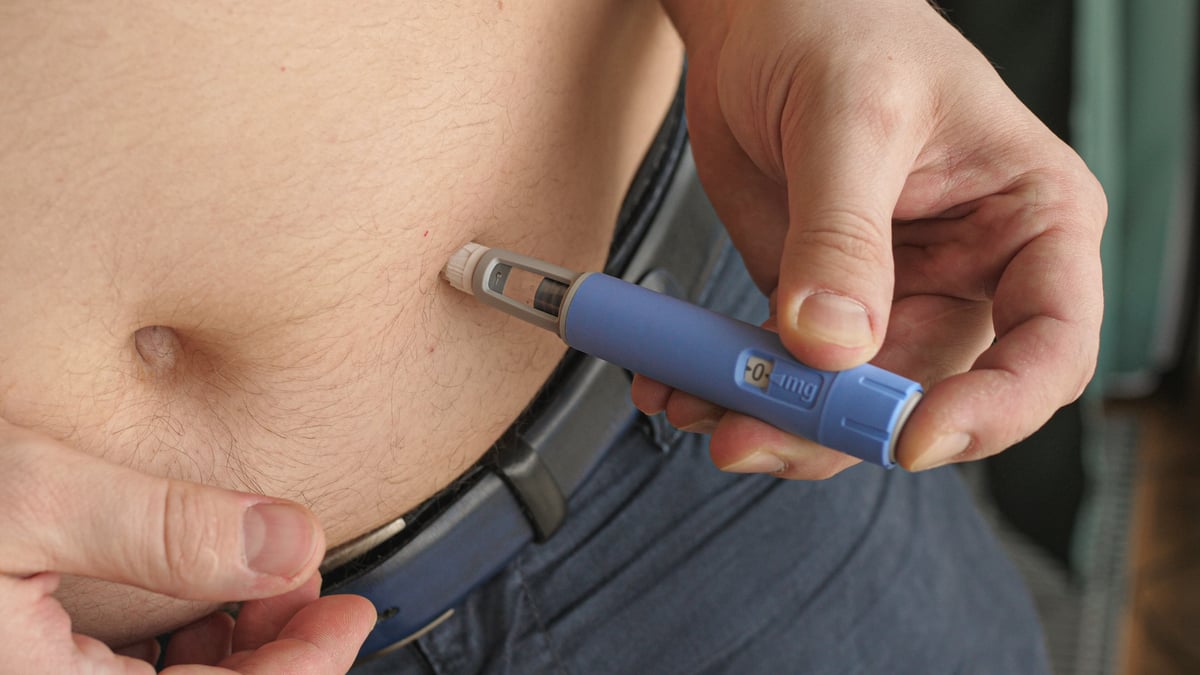Obesity drugs are arguably the hottest growth opportunity in the healthcare sector.
These drugs primarily work by slowing digestion and suppressing patients' appetites. What began as a treatment for type 2 diabetes has expanded into the broader weight management space, creating a surging market opportunity. According to Morgan Stanley, obesity drug sales could grow from $15 billion last year to $150 billion by 2035.
Two pharmaceutical companies have dominated the industry with their current-generation subcutaneous (injected) drugs, but the stakes are high as next-generation treatments near regulatory approval, including oral (pill) formulations.
Here are three high-profile competitors in the obesity drug industry, and why they are set to soar this Fall and beyond.
1. Eli Lilly: The current clubhouse leader in the U.S. market
Eli Lilly (LLY 1.51%) has become the leading company in the United States for obesity drugs. It sells two primary products containing tirzeptatide as the proprietary active pharmaceutical ingredient (API): Mounjaro for type 2 diabetes, and Zepbound for chronic weight management. The two products have an estimated 1.1 million active transcripts in the United States between them.
The company has dramatically expanded its market share over the past year, capitalizing on its arch-rival's struggles -- more on that shortly. Eli Lilly is developing orforglipron, a once-daily oral GLP-1 medication for the treatment of type 2 diabetes and obesity. It's also developing retatrutide, a triple-hormone-receptor agonist, as its next subcutaneous obesity drug.

NYSE: LLY
Key Data Points
These innovations, assuming they ultimately obtain regulatory approvals, could enable Eli Lilly to build on its recent momentum in a vast addressable market that spans far beyond its current patient count of 1.1 million. Eli Lilly hopes to submit for final approval to launch orforglipron later this year.
2. This industry stalwart dominates international markets
Novo Nordisk (NVO 4.07%) is Eli Lilly's arch-rival. Although the company has lost market share over the past year, Novo Nordisk remains a prominent force in this industry. Its proprietary semaglutide is the active pharmaceutical ingredient in Ozempic for type 2 diabetes and Wegovy for obesity. These two drugs have about 968,000 transcripts in the United States. Novo Nordisk also holds a total market share of approximately 71% of the international GLP-1 market.
However, the company has struggled against telehealth companies selling compounded semaglutide, essentially copycat products made at customized dosages. It has become problematic enough that Novo Nordisk cut its outlook and the CEO stepped down earlier this year. One way Novo Nordisk plans to combat compounded obesity drugs is with a pill version of Wegovy. It would be the first GLP-1 pill to hit the market if it launches before Eli Lilly's orforglipron.

NYSE: NVO
Key Data Points
Since it utilizes semaglutide, which has already proven effective and popular among patients, it could persuade individuals using compounded subcutaneous treatments to switch. It doesn't seem like a stretch to say that most people would probably prefer a pill to a needle. Novo Nordisk has already submitted its formal application to the FDA and could receive a decision by the end of the year. News of approval would likely reinvigorate this slumping pharmaceutical giant.
3. A new competitor to the obesity drug space with loads of potential
Viking Therapeutics (VKTX 3.15%) could emerge as a new challenger to the dominance currently enjoyed by Eli Lilly and Novo Nordisk in the obesity drug market. The company's experimental drug, VK2735, is a dual GLP-1/GIP agonist, similar to tirzepatide, Eli Lilly's proprietary drug used in Mounjaro and Wegovy. Importantly, Viking Therapeutics is developing both a subcutaneous version (in phase 3 trials) and an oral version (in phase 2 trials).
While the oral formulation's most recent trial results included some issues with side effects, VK2735 has demonstrated strong efficacy. It appears poised to be a competitive offering if it wins regulatory approval and reaches the market. Viking Therapeutics only has a market cap of $4 billion, leaving room for significant investment upside if the company can successfully establish itself in the obesity drug space.

NASDAQ: VKTX
Key Data Points
However, the stock is riskier than its established competitors, as it hasn't brought a product to market yet, and thus, has no revenue. The stock has been quite volatile and is currently down over 60% from its all-time high. Viking Therapeutics could soar heading into the Fall, or possibly next year, as Wall Street anticipation builds for updates on the subcutaneous version of VK2735.





